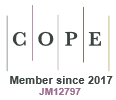Call for Papers
Guest Editors
- Shaorun Lin – The Hong Kong Polytechnic University
- Nick Wilson – Australian National University
- Elsa Pastor – Universitat Politècnica de Catalunya
- Ali Tohidi – University of Maryland College Park
Wildland-urban interface (WUI) fires pose an escalating global challenge, driven by climate change, expanding human settlements, and evolving fire regimes. Recent catastrophic fires in Los Angeles, California, United States highlight the urgent need to advance scientific understanding, policy frameworks, and adaptive management strategies to mitigate risks and enhance resilience. This special issue seeks to bring together cutting-edge research that examines past WUI fire events, identifies emerging threats, and proposes innovative solutions for the future.
We invite original research articles, reviews, and case studies addressing (but not limited to) the following topics:
- Lessons from Past WUI Fires: Analysis of historical and recent fire events, including case studies on fire behavior, impacts, and response strategies.
- Fire Dynamics in the WUI: Investigations into fire spread mechanisms, ember transport, structure ignition processes, and interactions between vegetation and built environments.
- Risk Assessment and Modeling: Advances in fire behavior modeling, GIS applications, remote sensing, and predictive analytics for WUI fire risk mitigation. Community Resilience and Adaptation: Studies on public perception, evacuation planning, land-use policies, and community-level mitigation strategies.
- Fire Suppression and Management: Innovations in firefighting tactics, prescribed burning, and resource allocation for WUI fire response.
- Climate Change and Future Fire Trends: Research on how climate change is altering WUI fire regimes and potential adaptation strategies.
- Policy and Governance: Analysis of regulatory frameworks, cross-jurisdictional coordination, and economic implications of WUI fire management.
All submissions are to be made through the ScholarOne submission portal and should comply with the Publishing Policies as listed on the International Journal of Wildland Fire website.
Submission Deadline: 31 December 2025


